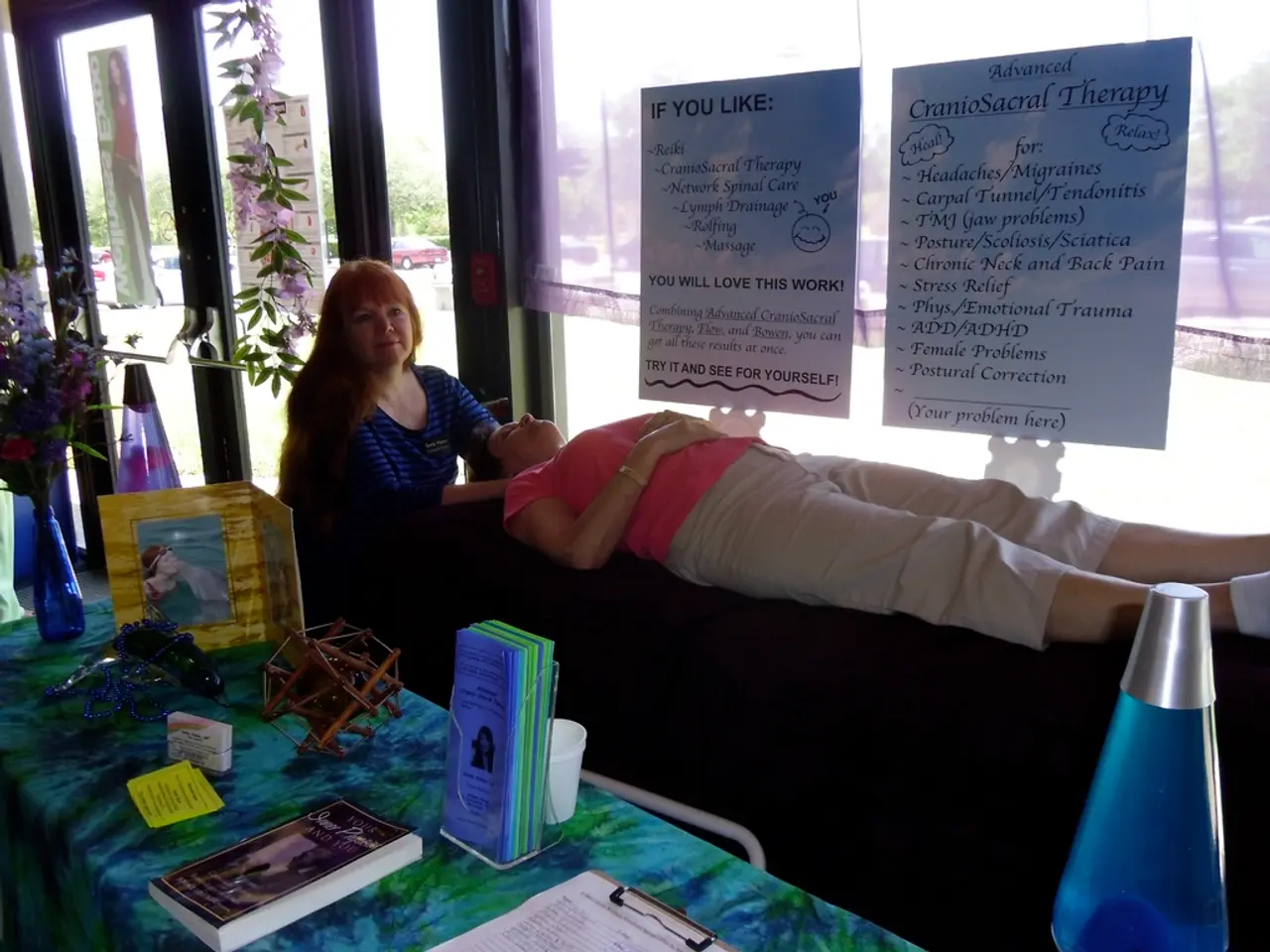Frequent Mood Changes Lead to Questions About Bipolar Disorder - Conclusion Part 2
Claire Borg, a renowned gestalt psychotherapist, has dedicated her career to understanding and supporting individuals living with mental health issues, particularly those with bipolar disorder. Her specialization lies in working with adolescents and adults, offering them a beacon of hope and guidance.
Bipolar disorder, a complex mental health condition, is characterized by episodes of mania and depression. In some cases, these episodes can overlap, resulting in mixed episodes. These mixed episodes can be particularly challenging, as they involve symptoms such as elevated energy or agitation combined with depressive mood, racing thoughts with negative thinking, restlessness, and sleep disturbances [1][2][4][5].
Effective management of mixed episodes requires a multi-faceted approach. Pharmacological treatment, such as mood stabilizers and atypical antipsychotics, may be used in conjunction with psychotherapy like Cognitive Behavioral Therapy (CBT) and psychoeducation [2][3][4]. It's crucial to monitor early warning signs, make lifestyle adjustments, and seek close medical supervision due to the increased risk of suicide during mixed states [5].
Claire Borg emphasizes the importance of leading a fulfilling life despite the challenges posed by bipolar disorder. She underscores the value of support from loved ones and communities in maintaining resilience and long-term wellbeing. Embracing consistent care, open conversations, and a commitment to personal growth can help individuals with bipolar disorder thrive.
For those seeking professional guidance, Claire Borg can be contacted at claire@our website. Her work focuses on mental health lifestyle changes, providing a holistic approach to managing bipolar disorder.
In conclusion, managing bipolar disorder requires awareness, professional guidance, and a strong personal commitment. Recognition and intervention at early signs of mood shifts can greatly reduce episode severity and improve daily functioning. With the right support, individuals with bipolar disorder can lead fulfilling lives.
[1] American Psychiatric Association. (2013). Diagnostic and Statistical Manual of Mental Disorders (5th ed.). Arlington, VA: American Psychiatric Publishing. [2] American Psychological Association. (2010). Practice Guidelines for the Treatment of Patients With Bipolar Disorder. Washington, DC: Author. [3] National Institute of Mental Health. (2016). Bipolar Disorder. Retrieved from https://www.nimh.nih.gov/health/topics/bipolar-disorder/index.shtml [4] National Alliance on Mental Illness. (2021). Mixed States. Retrieved from https://www.nami.org/About-Mental-Illness/Mental-Health-Conditions/Bipolar-Disorder/Mixed-States [5] World Health Organization. (2019). Depression and Other Common Mental Disorders: Clinical Management Guidelines for Integrated Care in Low-Resource Settings. Geneva: Author.
- Claire Borg's therapies and treatments for individuals with bipolar disorder stretch beyond traditional psychotherapy, reaching into the realm of mental health lifestyle changes, as she advocates for a holistic approach that includes nutrition and health-and-wellness.
- In addition to pharmacological treatment and psychotherapy like CBT, mental health care for those with bipolar disorder can benefit from science-backed information and education about their condition, as provided through psychoeducation.
- Seeking help is crucial for managing mixed episodes, a challenging aspect of bipolar disorder, and Claire Borg, with her extensive experience in the health-and-wellness field, offers guidance to those battling this condition through her work and therapies-and-treatments.




